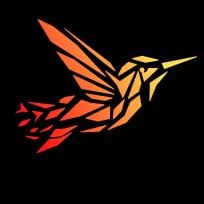Turkish President Recep Tayyip Erdogan just said that he won’t be allowing Sweden to gain NATO membership! He says that supporters of The Kurdistan Workers’ Party or PKK, a Kurdish militant political organization, are still primarily present in Sweden who wave flags against Turkey! Let’s dig deep into this matter!
Let’s start with telling you guys what exactly NATO is and why countries strive to gain its membership!
What is NATO?
NATO, the North Atlantic Treaty Organization, is an alliance of countries focused on mutual defence and security. Its primary goal is to deter aggression and maintain regional stability through collective defence.
Countries work hard to gain NATO membership because it provides collective defence and security assurance against potential threats. It enhances military capabilities and offers political influence in shaping policies. Joining NATO fosters stronger alliances, promotes stability, and contributes to regional peace.
Why Turkey isn’t Letting Sweden Become a NATO Member?
To achieve the same benefits, Sweden is also striving to get a NATO membership! NATO consists of 31 member states from Europe and North America, and one of them is Turkey, which is not a great fan of Sweden becoming a member of NATO. Turkish president, Erdogan, says that, since they have a veto on any country joining the alliance, the country will use it until its demands over the alleged PKK presence in Sweden are addressed, as PKK is actively working against Turkey. Erdogan said he won’t allow Sweden to join NATO at next month’s summit in Vilnius.
History of PKK and Turkey!
Do you know about the history of Turkey and the Kurdistan Workers’ Party (PKK)? Let us tell you that PKK and Turkey have been engaged in a conflict primarily due to longstanding issues related to Kurdish aspirations for autonomy and the PKK’s use of violence.
The conflict involves a complex mix of political, cultural, and historical factors, including the Kurdish minority’s demands for greater recognition and rights within Turkey. Efforts towards peace and resolution have been made over the years, but significant challenges remain in reaching a lasting solution.
That’s why Erdogan is so against it. He also told journalists that while NATO Secretary-General Jens Stoltenberg had been trying to convince him to accept Sweden’s bid for membership of the military alliance, “terrorists” were openly demonstrating in the streets of Stockholm.
The PKK has a decades-long war against Turkey, and the supporters of the party also demonstrated against the country earlier this month, angering Ankara. Erdogan complains that Stockholm hasn’t done enough to uphold its promises as it recently allowed PKK supporters to demonstrate.
Did you know that the PKK is listed as a terrorist organization by numerous countries, including members of the European Union and the United States?

PKK supporters in Sweden have been a major stumbling block for the country’s attempts to join NATO following Russia’s invasion of Ukraine.
However, Sweden has also been making significant efforts to eradicate the PKK’s presence in the region! The country passed a constitutional amendment and has revised laws to enable action against terrorist groups. For example, on 9 June 2023, a Swedish prosecutor charged one of his countrymen for raising funds for the PKK.
Did you know that while some countries are fighting to get NATO membership, the picture is flipped for some of them? For example, India just refused the offer to join NATO! Indian External Affairs Minister, Dr S. Jaishankar, says that India can counter Chinese aggression and hegemony all by itself.

Conclusion
Turkish President Erdogan’s opposition to Sweden’s NATO membership based on the presence of PKK supporters has significant implications for the political landscape, and only time will tell their severity!
